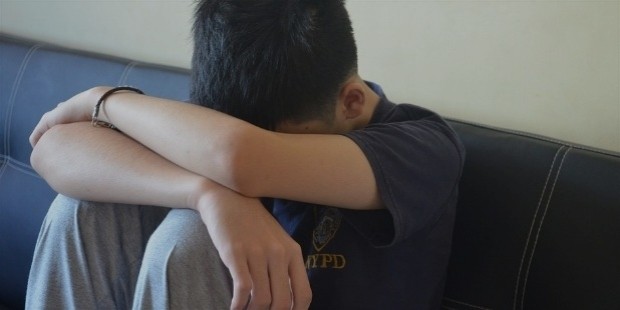Self Esteem

Consequences of Low Self-esteem
Low self-esteem can harm a person mentally and socially. It is associated with negativity, failure, depression and setbacks. Low self-esteem culminates from past experiences, poor self-image and lack of confidence. Low self-esteem comes with its set of evils. It is a chain reaction.
- 1. It leads to increased levels of stress, anxiety and the possibility of suffering from depression.
- 2. Feelings of inadequacy and strained relationships lead to feelings of loneliness.
- 3. It adversely impacts academic performance in student life and later professional career.
- 4. Low Self-esteem either discourages a person from accepting challenges or creates an unrealistic picture of goals and expectations.
- 5. Very high levels of low self-esteem compel a person to become a drug addict or alcoholic.
- 6. Consequences of low self-esteem set a chain reaction; it is a cycle, reinforcing the negative self-image and further decreasing the self-esteem of a person and increasing its related evils.
Three Measures to Improved Self-Esteem
“To be beautiful means to be yourself. You don’t need to be accepted by others. You need to accept yourself.” -Thich Nhat Hanh
Low self-esteem is not a permanent fixture. It can be treated and the power to do so lies within you! First things first, accept that there is a problem and then believe that you can change the situation to your liking. There are a few steps that you can take to improve your self-esteem and sense of self-worth.
1. Refute the Inner Critic

Start with challenging and refuting the inner critical and harsh voice that tells you that you are incompetent. Consider this situation- you have completed a project successfully and your efforts have been appreciated by your seniors. But deep within, the feelings of inadequacy and doubts linger. You are trying to find faults in your own work. You need to get hold of yourself and think positive. Tell yourself that you deserve the praise you have received.
In another situation, you are learning to swim and do not fare well in the swimming gala. So instead of berating yourself with harsh and self-deprecating remarks, you can try a more positive approach. You are still learning and can now at least swim; speed and style are a matter of time and practice!
Stop internalising the negative expressions of others. Someone could be upset or angry for a variety of reasons; it doesn’t have to do with you.
2. Practice Self-Compassion

Be kind to yourself. Mistakes should be the stepping stones for improvement. Accepting your mistake and learning from it will help you as a person and increase your sense of self-worth. If you fail to achieve a goal, be gentle with yourself and take care of yourself.
There are things beyond our control. You need to acknowledge this. If something did not turn out the way you expected it to, maybe it was never in your control. If you are compassionate towards yourself, you will treat others as well with the same compassion and empathy.
Give yourself time and space to come to terms with your emotions. Try and find an inner balance. Do not be judgemental and remember that everything is transitory, including your problems and the related emotions.
3. Turn to Others for Help

Seek help; there is nothing to be ashamed of. Turning to your family members and friends for help and support will help you overcome your low levels of self-esteem. What happens is since, people suffering from low self-esteem feel they do not deserve help, they don’t ask for it.
Get a positive and realistic feedback from a friend or family member. Speak your mind and express yourself freely before this person. If in school or college, seek help from your teacher or professor and a counsellor. They are there to facilitate learning. Take extra classes or tutorials to tackle your weak areas of learning. Cultivate a hobby that will help you relax and bring your skills to the forefront.
It may be necessary to seek professional help from a therapist or a counsellor. Since these people are professionally trained to handle such situations, talking to them would help immensely.
Resources for Improving Self-Esteem

The feeling of negativity and lowered sense of self-worth set the path for self-destruction. Nothing is more significant than how we perceive ourselves. Each one of us is born with certain attributes. We need to realise these and maximise our strengths. There are certain resources that can help increase levels of self-esteem.
- 1. Motivate yourself and reinforce positive self-image
- 2. Look after yourself and your appearance
- 3. Do NOT compare yourself with others
- 4. Eat healthy and adapt a healthy lifestyle
- 5. Do things you enjoy doing
- 6. Be assertive when interacting with others
- 7. Acknowledge your attributes and feel proud of what and who you are
- 8. Set realistic goals and once you achieve them laud your efforts
- 9. Do NOT allow your internal critic to dominate your well-being.
- 10. Inculcate hobbies that make you feel good
- 11. Spend time with people who care about you and add to your happiness quotient and sense of self-worth.
Low Self-Esteem in Children

Childhood is the first stage in human life. Generally, it is free of tensions, stress and anxieties. Therefore, children have high self-esteem. But of course, there are exceptions to the rule. Family environment and relationships shape the personality of a child and determine the levels of self-esteem to a large extent. Excessive discipline and physical punishment and denial of love and affection are the primary causes of low self-esteem in children.
1. Behavioural Problems

Children suffering from low self-esteem develop behavioural disorders such as bulling cheating and avoiding. They are quitters and escapists. Since they suffer from internal insecurities, they resort to socially unacceptable behaviour to get noticed. These are manifestations of his/her low self-worth and poor self-image.
2. Lack of Confidence

These children display socially inadequate traits. You will generally find them withdrawn and extremely shy in a social gathering. They find it difficult to enjoy themselves and interact with others. They are susceptible to peer pressure and fail to assert themselves. They can get easily bullied.
3. Failure to Accept Challenges

Whether in school or the society/community they live in, such kids shy away from accepting challenges. They will never want to try something new since the fear of failure is too deeply engraved in their psyche. They accept defeat without even trying to succeed.
4. Helpless Attitude

Lack of confidence coupled with a poor self-image makes the child helpless. He rarely participates in any activity and fares poorly in academics. He/she hesitates to approach his teachers for help and guidance. He has internalised his weakness and feels that he does not deserve help.
5. High Levels of Frustration

Children low on self-esteem display a tendency to compare themselves with others, while undermining their own capabilities. They set unrealistic targets and chase impractical goals. When they fail to succeed, they get frustrated, little realising that they have no control over certain situations. Unfortunately, a child may resort to cheating and lying in the given scenario.
6. Lack of Peer Groups

Such children are loners, not because they are introverts, but because they lack the confidence to mingle and make friends. Moreover their behavioural problems further compound the situation when they become the butt of jokes among their class-mates.
7. The Blame Game

Children with low self-esteem lack the courage to take responsibility for his/her actions. He/she blames others for any failure or setbacks. He/she loses interest in his studies and other activities and displays extreme mood-swings. The child places too much of importance on other people’s opinion of him/her.
Low Self-Esteem in Teenagers
Self-esteem is a continuous phenomenon. According to psychologists, self-esteem fluctuates constantly during adolescence. Girls suffer from perception of body image during these years. Teenagers suffering from low self-esteem find it difficult to cope with school, peers or societal life. They feel pressured about their academic performance and by behavioural expectations. In fact, teenagers are vulnerable and can easily develop mental and social problems.
There are some common indicators to suggest that a teenager may be suffering from low self-esteem.
1. Inacceptable Social Behaviour

Teenagers suffering from low self-esteem have poor self-image and this manifests itself through negative behaviour towards others. They bully and tease others and indulge in gossip. They feel that they will appear better by putting others down.
2. Displaying Incorrect Body Postures

This lot displays specific bodily postures. They walk around with bowed heads and avoid eye-contact. These are symbols of shame and embarrassment. They would rather remain unnoticed and inconspicuous. Their own sense of unworthiness prevents them from making eye-contact. They avoid making a connection as they feel that others also look down upon them.
3. Inflated Self-Opinion

Teenagers with low self-esteem suffer from inner battles, and they try hard to convince themselves and others about their worth. They boast about their achievements and indulge in self-praise. They are constantly looking for validation from external sources in order to fight their internal negativity.
4. Adopts an Aggressive and Loud Tone

A loud and aggressive tone and style of speaking is indicative of feelings of inadequacy and insignificance. They resort to dominating a conversation by speaking in a loud and an unpleasant tone to gain attention and importance. Unfortunately this serves to further alienate them and they end up facing rejection.
5. Avoids Social Gatherings

Feelings of self-loathing and worthlessness makes teenagers with low-self-esteem go into self-isolation. As they have a poor image of themselves, they feel that others also do not like them. They fail to make friends, which further worsens the situation. Peers play an important part in teenage and failure to belong to a peer group can be very damaging.
6. Dramatises and Exaggerates Situations

Teenagers suffering from low self-worth crave for attention and end up behaving in an unbecoming manner. They dramatise a situation and exaggerate, contorting facts and reality. They are desperate for attention from others and are craving for a listening ear.
7. Apologises Constantly

Lack of confidence and a fear of failure lead to failure. When teenagers continuously face setbacks they, internalise their failures and suffer from a guilt complex. This is a vicious cycle and they end up apologising all the time and here, saying ‘sorry’ has nothing to do with being wrong.
Low Self-Esteem in Adults
Low self-esteem is more than just a sense of worthless; it manifests itself in action—or in inaction and is all destructive. Such a person suffers from feeling of inadequacy in any given situation and is incapable of accomplishing any demanding work. A lack of self-esteem results in a pessimistic attitude and internalisation of the sense of failure.
1. Poor Self-Image

People with poor self-esteem have a very narrow perspective of themselves. They underestimate their self-importance, value and uniqueness. They internalise negativity. This lot surrenders and accepts defeat without even trying. They lack the confidence to explore and accept challenges.
2. Self-criticism & Evils of Comparison

People with low self-esteem are overtly self-critical and indulge in procrastination. They set unrealistic goals for themselves, and then find it difficult to accept failure. They draw comparisons between themselves and others. While they are envious of other people’s achievements, they fail to acknowledge their own strengths.
3. Failure to take Responsibility

This lot indulge in blame game and are very intolerant towards everyone at large. They fail to take the responsibility of their own actions and always blame external forces for any shortfall or failure. Since they suffer from a lack of self-worth, they perceive the world with jaundiced eyes and exhibit high levels of intolerance, again a manifestation of internal doubts and fears.
4. Susceptible to Pressure

People suffering from low self-esteem, buckle under pressure. They allow others to influence them and their opinions and actions. They are incapable of undertaking any demanding task. Their own inability to act makes them vulnerable and they fail to take a stand. They get bullied and this further pushes them on the path of self-pity.
5. Unbalanced Relationships

People suffering from low self esteem may have problematic relationships. As they themselves suffer from an emotional imbalance, being hyper-sensitive and defensive, they can hardly build stable and successful relationships. With such people, feelings of being hurt, lack of communication, unrealistic expectations and fault-finding dominate their relationships.
6. Defensiveness

This lot is constantly on the defensive. Expecting to be criticised and disapproved, they adopt an aggressive attitude. They are not willing to be criticised by their near and dear ones either. Such people are therefore incapable of making a judgement or admitting to a mistake or fault.
7. Insulting and Deprecating Attitude

Such people do not have a positive self-image, and this result in perceiving the world with negativity. They enjoy humiliating those weaker than them. This behaviour is a manifestation of their lack of self-worth.
They suffer from the misconception that their self-esteem will increase by demeaning others. You will find that this lot would rather work alongside new-comers whom they can bully rather than seasoned workers as they feel inadequate with them.
Self-esteem is woven into the very fabric of our being. It is integral to the person we are. Believing in yourself and your abilities will arm you adequately to maintain high levels of self-esteem. Indulging in self-positive talks and adopting a realistic attitude will serve you well.
Each of us is responsible for our own state of happiness or unhappiness. It is in our control to a great extent, to change our situation and improve the quality of our lives, so that we enjoy high levels of self-esteem and a positive self-image.









